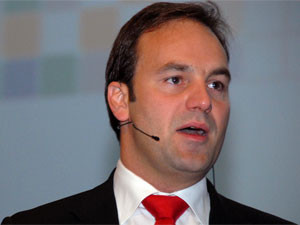
Entrepreneur and founder of the Shuttleworth foundation, Mark Shuttleworth, says his bid to have the South African Reserve Bank (SARB) refund the amount he had to pay when he moved his assets out of the country, will benefit local technology entrepreneurs.
According to media reports, Shuttleworth had to fork over around R250 million when he tried to move his gains from selling Thawte to an international destination.
Shuttleworth argues that exchange controls prejudice small businesses and individuals, preventing South African citizens and residents from managing their finances in a global economy, without providing the state with meaningful control over the value of the rand.
Shuttleworth founded Thawte and sold it to VeriSign for $575 million in 1999, before founding venture fund HBD and setting up the Shuttleworth Foundation, which funds change in society. In April 2002, he flew into space, as a cosmonaut member of the crew of the Russian Soyuz mission TM34, to the International Space Station, and subsequently developed Ubuntu.
Disadvantageous
Exchange controls are "a remnant of Apartheid-era concerns about capital flight that pre-date globalisation, created at a time when government did not reflect the broader interests of society," he says in a statement.
Shuttleworth argues that successful economies recognise the value of cross-border integration and encourage trade, while building domestic strength in particular sectors. "Modern small businesses need to be global from the start - drawing on talent and resources wherever they are best available, in order to serve a global customer base."
However, exchange controls put South African entrepreneurs at a significant disadvantage to their counterparts in all Western economies, says Shuttleworth. He adds this is particularly acute in the technology sector.
After questioning exchange controls, the bank removed the requirement for emigrants, and asked Shuttleworth to drop the case. He says, however, his goal by approaching the courts is to establish the rights of South African entrepreneurs so they do not have to emigrate to work on a global basis.
"The case seeks to ensure that South Africans can stay resident in SA and retain freedom of investment globally, subject to appropriate regulatory supervision in line with common practice elsewhere," Shuttleworth says.
Any proceeds from the case will go towards future constitutional defence actions, providing a fund to support cases where government actions appear to step outside their constitutional mandate, providing in one sense balance to the asymmetric resource relationship between the state and its citizens in disputes of a constitutional nature, says Shuttleworth.
ITWeb understands SARB has hit back at Shuttleworth, but was unable to source a press release from the bank.
Share